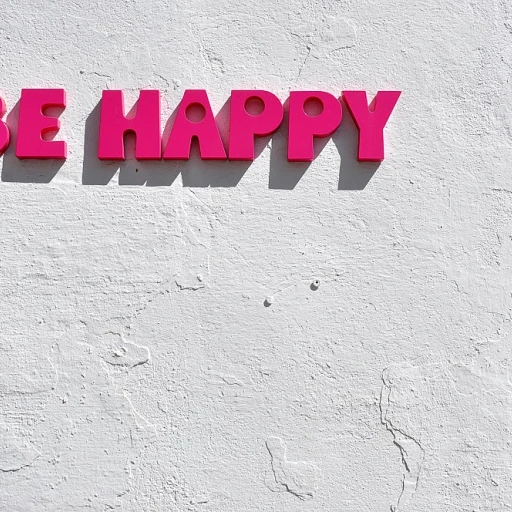
Understanding the role of personality tests in team building
Why Personality Assessments Matter in Team Building
In today’s workplace, building effective teams is more than just matching skills and experience. Understanding the personality traits of individuals can be a game changer for team dynamics. Personality assessments help HR professionals and hiring managers see beyond resumes, offering insights into how people communicate, solve problems, and collaborate with others. These tests help identify strengths and potential challenges within a team, making it easier to create balanced groups where each team member can thrive.
When you use personality tests during the hiring process, you gain a deeper understanding of each candidate’s workplace personality. This information is valuable for predicting how individuals will interact with existing team members, and how their unique traits will contribute to the overall team personality. Whether you’re forming a new team or adding to an established group, personality assessments can help ensure that everyone works well together and that the team’s goals are met efficiently.
- Personality tests like DISC, Myers Briggs, and Enneagram DISC offer structured ways to assess communication styles and work preferences.
- Assessments provide a personality profile that highlights both strengths and areas for growth.
- Understanding personality types can help prevent conflicts and improve team communication.
By integrating personality inventory tools into your team building strategy, you can better understand the diverse personalities that make up your teams. This approach not only supports more effective collaboration but also helps individuals feel valued for their unique contributions. For more on how direct hire strategies connect with team building, check out this guide to direct hire in HR job interviews.
Benefits of using personality tests during interviews
Why Use Personality Assessments in Interviews?
Personality assessments have become a valuable tool in HR interviews, especially when building effective teams. These tests help organizations go beyond resumes and technical skills, offering insights into how individuals might interact within a team. By understanding personality traits, HR professionals can better predict how a candidate will fit into the workplace culture and contribute to team dynamics.
Key Advantages for Team Building
- Improved Team Compatibility: Personality tests help identify complementary traits among team members. This can lead to stronger collaboration and more balanced teams, as people with diverse strengths and communication styles work together more effectively.
- Enhanced Communication: Understanding different personality types, such as those identified by DISC or Myers Briggs, can help managers tailor their communication and leadership approaches. This reduces misunderstandings and supports a more harmonious workplace.
- Better Role Alignment: Assessments can reveal which roles or tasks suit a candidate’s natural tendencies. For example, someone with a high degree of conscientiousness may excel in detail-oriented work, while a more extroverted individual might thrive in client-facing roles.
- Informed Decision-Making: Personality profiles provide additional data points, helping HR teams make more objective hiring decisions. This reduces the risk of bias and supports fairer, more transparent selection processes.
- Long-Term Team Success: By considering personality traits during the hiring process, organizations can build teams that are more resilient, adaptable, and engaged over time.
Supporting Effective Team Dynamics
Personality assessments like the Enneagram, DISC assessment, and personality inventories offer a structured way to better understand individuals. These tools help HR professionals see beyond surface-level impressions and focus on how a candidate’s personality will impact team building and workplace relationships. When used thoughtfully, personality tests help create teams where each member’s strengths are recognized and leveraged.
For more on how direct hire processes can benefit your team building strategy, check out this resource on understanding what direct hire means in HR job interviews.
Common personality tests used in HR
Popular Workplace Personality Assessments
When it comes to team building, HR professionals rely on a few well-established personality tests to better understand team dynamics and individual strengths. These assessments help identify communication styles, personality traits, and potential areas for growth within teams. Here are some of the most common personality tests used in HR settings:
- Myers-Briggs Type Indicator (MBTI): This widely used personality assessment categorizes individuals into 16 personality types based on preferences in how they perceive the world and make decisions. MBTI can help teams recognize differences in communication and work styles, supporting more effective collaboration.
- DISC Assessment: The DISC model focuses on four main personality traits: Dominance, Influence, Steadiness, and Conscientiousness. By understanding these traits, HR professionals can build teams with complementary strengths and improve workplace communication. The DISC assessment is especially valued for its practical insights into team member interactions.
- Big Five Personality Traits: Also known as the Five Factor Model, this assessment measures Openness, Conscientiousness, Extraversion, Agreeableness, and Neuroticism. It provides a comprehensive personality profile that can help teams understand how individuals may respond to workplace challenges.
- Enneagram: The Enneagram test identifies nine personality types, each with unique motivations and fears. This tool is often used to promote self-awareness and empathy among team members, supporting a healthier team environment.
- Personality Inventories: Other assessments, such as the Hogan Personality Inventory or the 16PF, offer additional insights into workplace personality and leadership potential. These tests help HR professionals match people to roles where they can thrive and contribute to team building.
Each of these personality assessments offers different perspectives on individual and team personality. Choosing the right test depends on the specific goals of your team building efforts and the types of insights you need about your team members. Using these tools thoughtfully can help teams work more effectively together and create a stronger, more cohesive workplace culture.
How to interpret personality test results
Making Sense of Personality Test Results
Interpreting the results of personality assessments is a crucial step in team building and HR interviews. These tests help provide insights into the personality traits, strengths, and communication styles of individuals. However, understanding what the results mean for your team and workplace requires a thoughtful approach.- Look for Patterns, Not Labels
Personality tests like DISC, Myers Briggs, and Enneagram DISC offer profiles or types, but it’s important to remember that no test can capture the full complexity of a person. Use the results to spot patterns in how team members prefer to work, communicate, and solve problems, rather than boxing people into rigid categories. - Focus on Team Dynamics
Assessments can reveal how different personalities interact. For example, a team with a mix of assertive and supportive types may balance decision-making and collaboration. Understanding these dynamics helps managers assign roles that fit each team member’s strengths, improving overall team performance. - Use Results as a Conversation Starter
Share personality assessment outcomes with individuals and teams to open up discussions about work preferences, stress triggers, and communication styles. This transparency can help people better understand each other and build trust within the team. - Combine with Other Assessment Methods
Personality tests should not be the sole basis for hiring or team building decisions. Combine them with interviews, skills assessments, and reference checks to get a more complete picture of each candidate or team member.
Practical Examples of Interpreting Results
| Test | What It Measures | How It Helps Teams |
|---|---|---|
| DISC Assessment | Dominance, Influence, Steadiness, Conscientiousness | Identifies communication styles and motivators for team members |
| Myers Briggs | 16 Personality Types (e.g., Introvert/Extrovert) | Highlights how individuals process information and make decisions |
| Enneagram | 9 Core Personality Types | Reveals core motivations and stress responses in the workplace |
Key Takeaways for HR Professionals
- Interpret personality test results as one piece of the puzzle in understanding team personality and dynamics.
- Use assessments to support, not replace, professional judgment and other evaluation methods.
- Encourage open dialogue about results to foster better communication and stronger teams.
By thoughtfully interpreting personality assessments, HR professionals can help teams work more effectively together, leveraging the unique strengths and communication styles of each team member.
Potential pitfalls and ethical considerations
Recognizing the Limits and Risks of Personality Assessments
Personality tests and assessments can offer valuable insights into team dynamics and individual strengths, but they are not without their challenges. When using personality assessments in the workplace, it’s important to be aware of potential pitfalls and ethical considerations that can impact both the hiring process and ongoing team building efforts.
- Over-reliance on test results: While personality tests help better understand team members’ traits and communication styles, relying solely on these assessments for hiring or team building decisions can be risky. Personality is just one aspect of a person’s work profile, and other factors like experience, skills, and motivation should also be considered.
- Misinterpretation of results: Not all managers or HR professionals are trained to interpret personality inventories or profiles accurately. Misreading a DISC assessment or Myers Briggs type can lead to poor decisions about team roles or workplace fit.
- Privacy and consent: Individuals must be informed about how their personality data will be used. Transparency is key—people should know what types of tests are being used, what the results mean, and how these insights will impact their work or team placement.
- Bias and fairness: Some personality tests may not be culturally neutral or may disadvantage certain groups. It’s essential to ensure that assessments are validated for fairness and do not reinforce stereotypes or limit opportunities for diverse individuals.
- Ethical use of data: Storing and handling personality assessment results requires careful attention to confidentiality. Only those directly involved in team building or HR decisions should have access to this sensitive information.
Ultimately, personality tests and assessments can help teams thrive when used thoughtfully. However, HR professionals must balance the insights gained with a commitment to fairness, privacy, and a holistic view of each team member. By recognizing these potential pitfalls, organizations can use personality assessments to support—not replace—good judgment and inclusive team building practices.
Practical tips for integrating personality tests into your interview process
Preparing Your Interview Process for Personality Assessments
Integrating personality tests into your interview process can add valuable insights into how individuals may fit within your team. To make the most of these assessments, it’s important to approach the process thoughtfully and systematically.- Clarify your goals: Define what you want to learn from personality assessments. Are you looking for specific traits that complement your existing team personality? Or do you want to better understand communication styles and potential team dynamics?
- Choose the right tools: Select personality tests that align with your objectives. Popular options include DISC, Myers Briggs, and Enneagram DISC. Each test offers different perspectives on workplace personality, communication, and strengths.
- Standardize administration: Ensure all candidates complete the same assessments under similar conditions. This helps maintain fairness and reliability in your hiring process.
- Train your interviewers: Provide guidance on how to interpret personality test results. Interviewers should understand the types of personality traits each assessment measures and how these traits relate to team building and workplace success.
- Combine with other evaluation methods: Use personality assessments as one part of a broader evaluation. Pair test results with interviews, skills assessments, and reference checks for a more complete picture of each candidate.
- Communicate transparently: Let candidates know why you are using personality tests and how the results will be used. This builds trust and helps people feel more comfortable during the process.
- Respect privacy and ethics: Handle all personality inventory data with care. Only share results with those directly involved in the hiring decision, and avoid making decisions based solely on test outcomes.
Making Personality Insights Actionable
Once you have the results, focus on how these insights can help your team work better together. Consider these practical steps:- Map out the personality profiles of your current team members to identify strengths and gaps.
- Use assessment results to guide onboarding and team building activities, helping new hires integrate smoothly.
- Encourage open discussions about communication styles and workplace preferences, fostering a culture of understanding and respect.
- Revisit your approach regularly to ensure your use of personality tests continues to support your team’s goals and growth.
By thoughtfully integrating personality assessments into your interview process, you can better understand individuals, build stronger teams, and create a more effective workplace environment.













